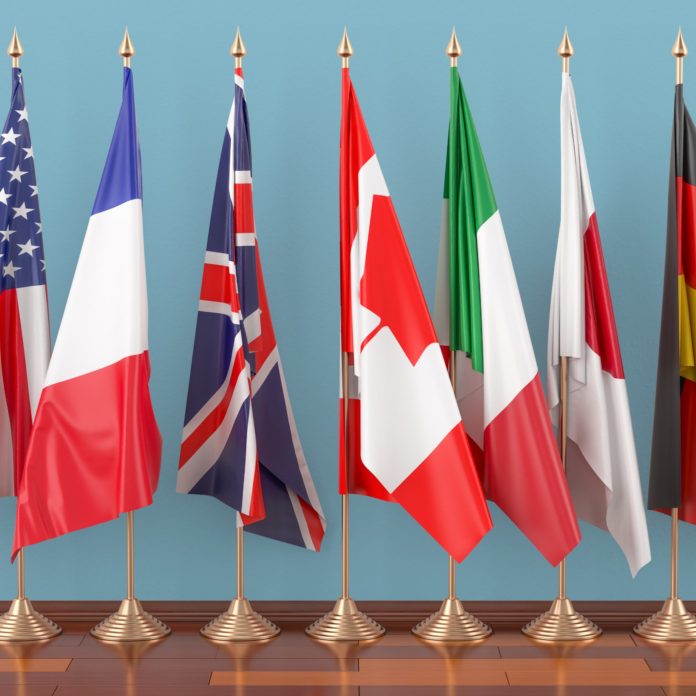This weekend sees the G7 meetings take place, which gives Britain a chance to stake its place in the world order post-Brexit. The recent agreement on corporate taxation – whether you agree with it or not – is a powerful indicator of how much can be achieved when countries work cooperatively together. While corporate tax can feel rather remote from many people’s lives, mobile phone connections matter increasingly to everyone. The G7 digital agenda suggests that rebuilding a productive and resilient global economy needs to have “digital technology at its heart” – this is correct, but it also needs a coherent global approach to make that happen.
In order to drive the kind of competitive and innovative structures that we all want to see, we need to ensure that new players and suppliers can easily enter the sector but also that communications and technology are fully secure. I don’t wish to reopen the debate on trusted and untrusted suppliers as that decision has now been taken although I note it has effectively restricted choice for operators largely to only two trusted suppliers for the mobile telecommunications market. My concern is that in filling the gap left by high risk vendors, the industry may be moving towards a more conservative strategy where the “safe” option is to rely on players already in the sector as being the ones that will be most likely to guarantee security.
This would be a major missed opportunity. The complexity and variety of a digitised communication system needs a myriad of players and, crucially, needs to avoid “bottlenecks” in the system where one component cannot interact with another. Proprietary systems – where one company’s equipment is incompatible with another company’s – will act as a brake on the kind of innovation we want to see (while doubtless appealing to the first company, usually one of the incumbent vendors). We instead need a structure that allows disruption and new firms to enter at any point in the value chain.
Open and interoperable interfaces are an answer to this. This is not a technology per se, but rather an architecture that allows communication between different technologies through open interfaces. This kind of architecture would unlock diversity in the system and will create an environment where new players can contribute and unleash innovation. This will help realise the full potential of 5G for consumers, industry and society, consistently with the aims of the Declaration of the G7 Digital and Technology Ministers.
It is capable of working right now, as demonstrated by deployments at scale by Rakuten (Japan) and Dish (US) among others, as well as many trials around the world. Why is it not being adopted at speed? The answer is the inertia in the global Standards Developing Organisations (SDOs) which so far have failed in the RAN subsystems to set genuinely open and interoperable 3GPP standards, creating a de facto lock-in with the traditional proprietary legacy Vendors. The G7 Digital & Technology Ministers rightly calls for a framework for G7 collaboration and inclusion of under-represented stakeholders on digital technical standards (Annex 1 of the above mentioned Declaration).
I am not suggesting that standards are not necessary – they are absolutely crucial in terms of guaranteeing quality of service and security. I am encouraged by the progress made by the five signatories of the OpenRAN MoU Group with the recently released Technical Priorities document: these operators are leading the way in promoting adoption of open interoperable interfaces, and I trust others will follow. But the G7 needs to take a collective approach to get such bodies to focus on removing the blockages in the system, by ensuring all players adhere to open standards of interoperability and letting innovators flourish as a result. The ORAN Alliance, as well as other groups, have already defined specifications that can be accommodated within the 3GPP body of standards.
Open, interoperable interfaces are more secure than current proprietary technologies as they allow multiple independent parties to continuously test the security of the network elements and any cyber-attack will need to penetrate a number of different systems to have any effect. Recent evidence also shows that it cuts costs for operators both in terms of capital outlay and energy costs. But most of all, Open and interoperable interfaces are about fostering innovation – allowing new approaches to flourish and to deliver new products and services that will benefit consumers everywhere. This can all be accomplished if the G7 acts now. I hope and believe it will.

